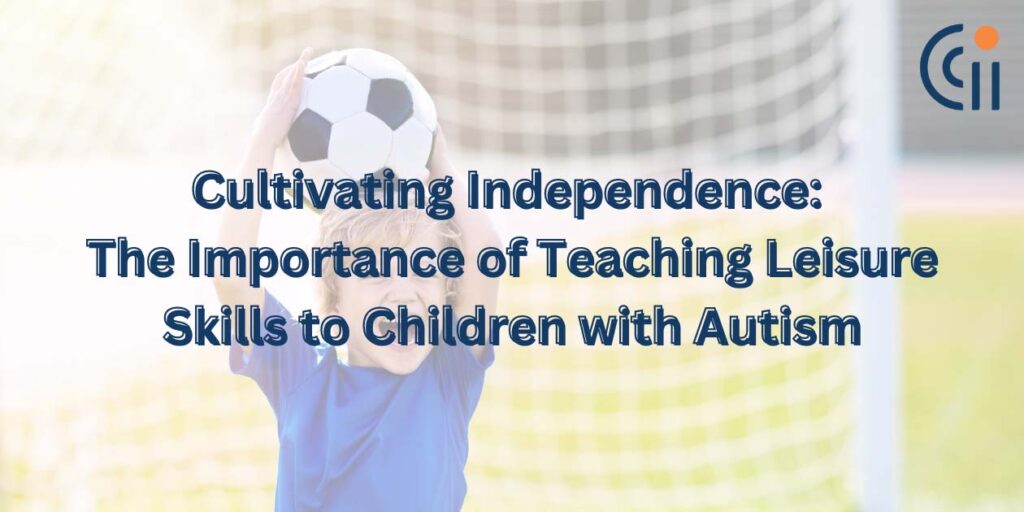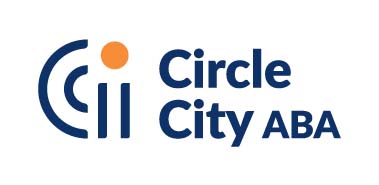
Why Teaching Leisure Skills is Crucial
Leisure skills play a significant role in the overall development and well-being of children with autism. These skills not only provide opportunities for relaxation and enjoyment but also help children develop social, cognitive, and emotional competencies. At Circle City ABA, we emphasize the importance of teaching leisure skills as part of our comprehensive approach to therapy, helping children with autism cultivate independence and a higher quality of life.
Defining Leisure Skills
Leisure skills refer to activities that individuals engage in during their free time for enjoyment, relaxation, and personal fulfillment. These activities can range from solitary pursuits like reading or drawing to social activities like playing sports or participating in group games. For children with autism, developing leisure skills can significantly enhance their ability to engage with their environment and build meaningful connections with others.
The Benefits of Teaching Leisure Skills
Teaching leisure skills to children with autism offers numerous benefits that extend beyond mere entertainment. These skills contribute to various aspects of their development and independence, including:
Enhancing Social Skills
Leisure activities often involve social interaction, providing children with autism valuable opportunities to practice and improve their social skills. Participating in group games, team sports, or cooperative play helps them learn how to take turns, share, communicate effectively, and interpret social cues. These experiences are essential for building relationships and navigating social environments.
Improving Cognitive Abilities
Many leisure activities require problem-solving, planning, and strategic thinking, which can enhance cognitive abilities in children with autism. Puzzles, board games, and building blocks are excellent examples of leisure activities that stimulate cognitive development. These activities help children develop critical thinking skills, improve memory, and enhance their ability to focus and concentrate.
Promoting Emotional Regulation
Engaging in leisure activities can provide a healthy outlet for children with autism to express their emotions and manage stress. Activities such as art, music, and physical exercise can be therapeutic, helping children relax and regulate their emotions. Learning to engage in leisure activities independently also fosters a sense of accomplishment and self-confidence, contributing to overall emotional well-being.
Encouraging Physical Activity
Physical leisure activities, such as swimming, cycling, or playing sports, promote physical fitness and overall health. Regular physical activity is crucial for maintaining a healthy weight, improving motor skills, and enhancing coordination. For children with autism, participating in physical activities can also provide sensory input and help manage sensory sensitivities.
Strategies for Teaching Leisure Skills
Teaching leisure skills to children with autism requires a structured and individualized approach. At Circle City ABA, we employ evidence-based strategies to ensure that each child develops the skills they need to enjoy leisure activities and become more independent. Here are some effective strategies for teaching leisure skills:
Identifying Interests and Preferences
The first step in teaching leisure skills is identifying the child’s interests and preferences. Understanding what activities the child enjoys and is naturally inclined towards can make the learning process more engaging and enjoyable. Observing the child’s spontaneous play behaviors and offering a variety of activities can help determine their preferences.
Using Visual Supports and Social Stories
Visual supports, such as picture schedules and step-by-step instructions, can be incredibly helpful in teaching leisure skills. These tools provide clear and concrete guidance, making it easier for children with autism to understand and follow the steps involved in an activity. Social stories, which describe a specific activity and the expected behaviors in a simple and structured manner, can also prepare children for new leisure experiences.
Providing Structured Teaching and Practice
Structured teaching involves breaking down an activity into smaller, manageable steps and providing explicit instruction and practice for each step. This approach can help children with autism learn and master leisure skills systematically. Repetition and consistent practice are key to reinforcing learning and promoting skill acquisition.
Encouraging Peer Interaction
Involving peers in leisure activities can provide valuable social learning opportunities for children with autism. Structured playdates, group games, and team sports can facilitate peer interaction and help children practice social skills in a naturalistic setting. Encouraging peer interaction also fosters inclusion and promotes a sense of belonging.
Reinforcing Positive Behavior
Positive reinforcement is an essential component of teaching leisure skills. Providing praise, rewards, or other forms of positive reinforcement for successful engagement in leisure activities can motivate children with autism to continue participating and developing their skills. Reinforcement should be immediate and contingent on the desired behavior to be most effective.
How Circle City ABA Supports Leisure Skill Development
At Circle City ABA, we are committed to helping children with autism develop essential leisure skills that contribute to their independence and overall well-being. Our approach includes:
Comprehensive Assessments and Individualized Plans
We begin with comprehensive assessments to understand each child’s unique strengths, interests, and areas of need. Based on these assessments, we develop individualized therapy plans that incorporate leisure skill development tailored to the child’s preferences and goals.
Evidence-Based ABA Therapy
Our Applied Behavior Analysis (ABA) therapy programs are designed to teach and reinforce leisure skills using evidence-based strategies. We focus on building foundational skills, such as communication, social interaction, and motor coordination, that are crucial for successful engagement in leisure activities.
Family Involvement and Support
We believe that involving families in the therapy process is essential for promoting skill generalization and consistency. Our team works closely with parents and caregivers, providing training, resources, and support to help them reinforce leisure skills at home and in community settings.
Creating Inclusive and Engaging Environments
We strive to create inclusive and engaging environments where children with autism can explore and enjoy various leisure activities. Our therapy sessions and group programs are designed to be fun, interactive, and supportive, encouraging children to try new activities and develop their interests.
Conclusion: Fostering Independence Through Leisure Skills
Teaching leisure skills to children with autism is a vital aspect of fostering independence and enhancing their quality of life. By providing opportunities for social interaction, cognitive development, emotional regulation, and physical activity, leisure skills contribute to overall well-being and personal fulfillment.
At Circle City ABA, we are dedicated to supporting children with autism in developing these essential skills through comprehensive assessments, individualized therapy plans, and evidence-based ABA therapy. If you are interested in learning more about how we can help your child cultivate independence through leisure skill development, please contact us today.
Disclaimer
The information provided in this blog post is for informational purposes only and is not intended as a substitute for professional medical advice, diagnosis, or treatment. Always seek the advice of your physician or other qualified healthcare provider with any questions you may have regarding a medical condition. Never disregard professional medical advice or delay in seeking it because of something you have read in this post. If you suspect that your child may have autism or any other health condition, please consult a healthcare professional for a thorough evaluation and appropriate intervention.


